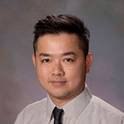
Article
The ARM model for wellness of counselors-in-training exposed to trauma cases
Counseling and Wellness
(2017)
Abstract
Over the past two decades, literature has discussed the negative consequences of working with trauma cases on counselors, which include disturbing feelings and thoughts, disrupted beliefs, and symptoms of post-traumatic stress disorder; these negative consequences have been defined as vicarious traumatization and other related terms. Researchers also identified factors contributing to vicarious traumatization, which include personal trauma history, workload, clinical experience and personal wellness. Particularly, novice counselors and counselors-in-training (CIT) have been recognized as a vulnerable population to vicarious traumatization, and an attention should be given to promoting wellness of CIT exposed to trauma cases. However, no article to date provides specific suggestions for faculty supervisors to promote the wellness of CIT during the practicum and internship. Therefore, the Assessment, Response, and Maintenance model proposed in this article aims to address this gap in literature and provide a novel contribution to the counseling profession more broadly. The model is an integrated one that adopts developmental and ecological concepts, and is mainly influenced by the Constructivist Self-Development Theory and the Wheel of Wellness. Practical examples are presented, and suggestions for future research are provided.
Keywords
- wellness,
- counselor education,
- vicarious trauma
Disciplines
Publication Date
October 13, 2017
Publisher Statement
Counseling & Wellness: A Professional Counseling Journal is the official publication of the Beta Alpha Chapter of Chi Sigma Iota at Northern Arizona University.
Citation Information
Huan-Tang Lu. "The ARM model for wellness of counselors-in-training exposed to trauma cases" Counseling and Wellness Vol. 6 (2017) Available at: http://works.bepress.com/huan-tang-lu/4/
